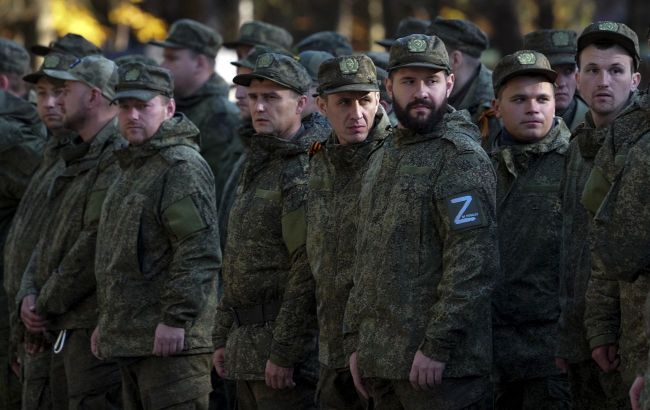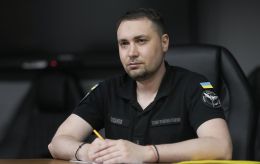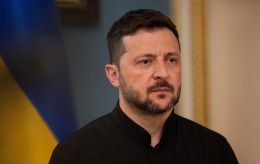FSB fails to establish coordination with Russian military forces in Kursk region - ISW
 The FSB cannot establish effective coordination with the Russian Armed Forces (photo: Getty Images)
The FSB cannot establish effective coordination with the Russian Armed Forces (photo: Getty Images)
The Russian Federal Security Service (FSB) is attempting to coordinate combat operations with the Russian military, despite its role in overseeing the counterterrorism operation against the so-called Ukrainian incursion in the Kursk region, reports the Institute for the Study of War (ISW).
The report references a publication in the Russian opposition outlet Novaya Gazeta Europe, which identified an FSB special forces soldier killed in combat in the Kursk region in August 2024. This information confirms that elements of Russia's FSB special forces are actively engaged in the region.
According to the outlet, an officer from the FSB assigned the task to special forces units, including fighters from the Alpha and Vympel groups, to detect and eliminate Ukrainian sabotage and reconnaissance groups in the Kursk region. However, the officer noted that these special forces are poorly suited for combined arms combat involving heavy equipment against regular armed forces.
ISW pointed out that FSB special forces typically conduct counterterrorism operations against small terrorist groups and are likely not adequately trained or equipped to face Ukrainian military units carrying out combined attacks.
Another source close to Russian intelligence informed Novaya Gazeta Europe that the FSB's Special Operations Center lacks joint communication with Russian military units and that there is still no joint command center for coordinating combat operations between the FSB and the Russian military.
The report also recalled that on August 9, Russian President Vladimir Putin tasked the FSB with conducting a counterterrorism operation in the Belgorod, Bryansk, and Kursk regions following the Ukrainian incursion into the Kursk region on August 6. However, Putin later assigned overlapping tasks to the Russian Ministry of Defense, the FSB, and the Russian National Guard.
ISW analysts noted that the Kremlin and Russian military leadership have tried to create a cohesive and effective command and control (C2) structure in response to the Ukrainian incursion into the Kursk region. However, it remains unclear which responsibilities fall under the FSB's counterterrorism operation or the Ministry of Defense's Coordinating Council.
"ISW has previously assessed that overlapping tasks and poor C2 structures will likely continue to generate friction between the FSB and the Russian MoD," the Institute for the Study of War stated in its report.
Operation of the Armed Forces of Ukraine in the Kursk region
The Armed Forces of Ukraine launched an operation in the Kursk region on August 6. By the end of the month, Ukrainian troops had taken control of 100 settlements in the region and captured several hundred Russian soldiers.
This maneuver allowed Ukraine to divert around 40,000 Russian troops from various fronts across Ukraine.
President Vladimir Putin ordered military leadership to liberate the occupied areas of the region by October 1.
At the beginning of September, Russian forces launched a counteroffensive; however, it has yet to achieve success and may end in a significant failure.

